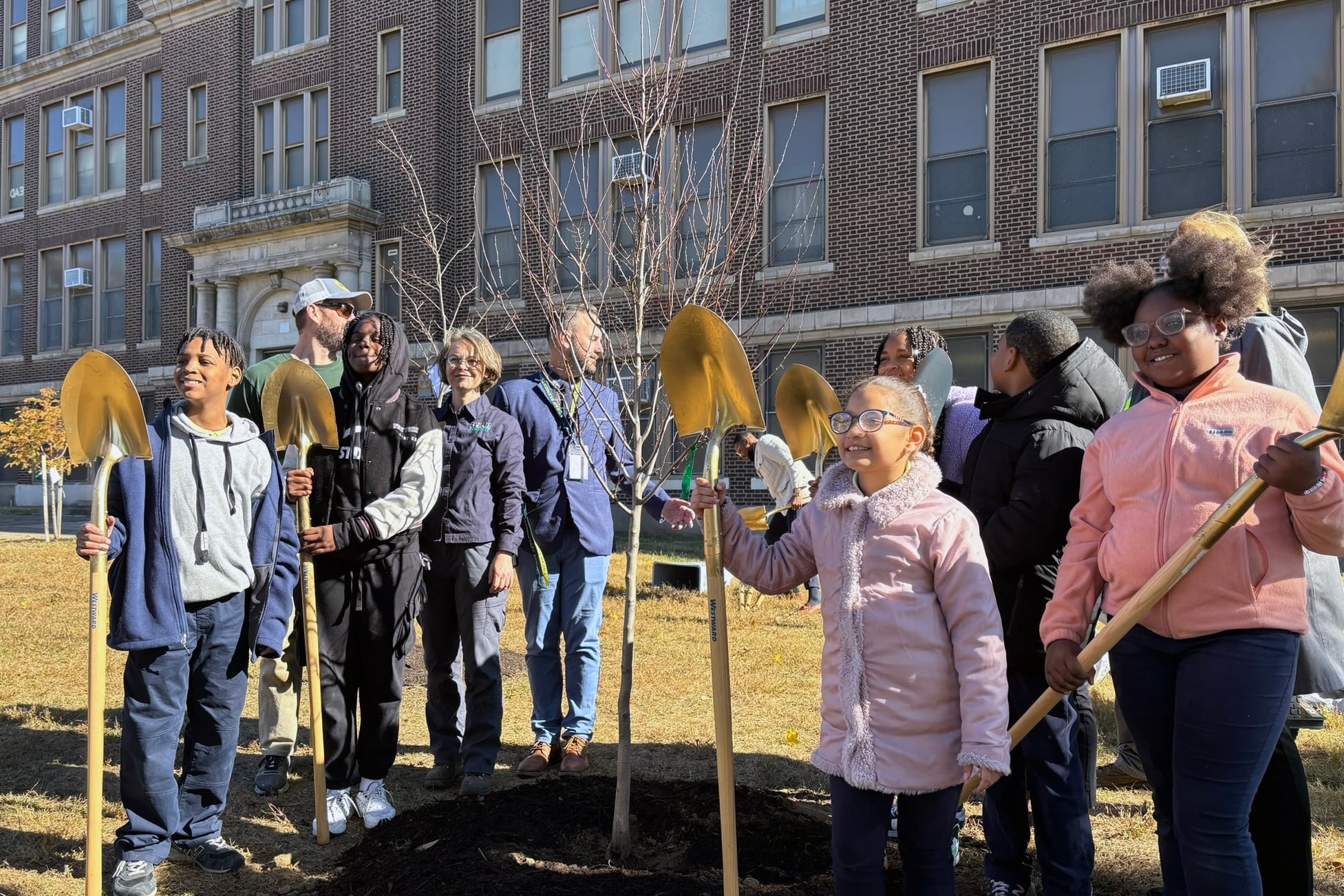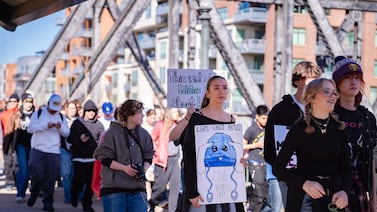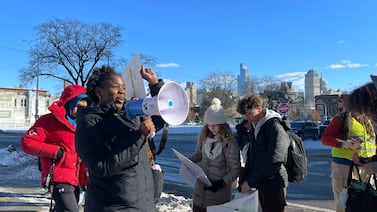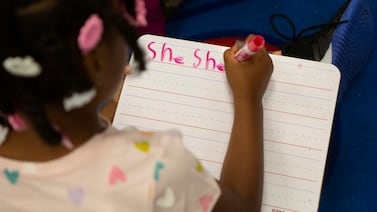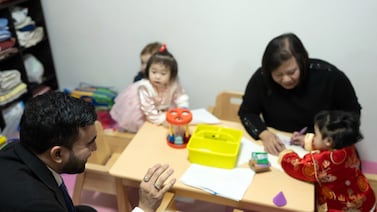Sign up for Chalkbeat Philadelphia’s free newsletter to keep up with the city’s public school system.
Lauryn Lawson, 10, a fifth grader at Logan Elementary School in Northwest Philadelphia, likes trees and plants. So does her classmate Lawrence Butler, 11. They both take every opportunity they can to go outside and help tend the small raised bed vegetable garden on the school’s front lawn.
For one thing, planting and harvesting peppers and other vegetables “is more fun than being in the classroom,” Lawrence explained.
He also likes learning about what he eats and how they grow, like “broccoli, carrots, and lettuce,” he said.
On Tuesday, Lawrence, Lauryn, and other students were front and center with important city and state officials to highlight a half-million dollar grant to the Philadelphia school district for the planting and tending of trees on its property.
The $500,000 to the school district is part of $79.4 million in state grants to organizations and government entities that will help fund 307 environmental and recreational activities in 57 of the Commonwealth’s 67 counties. Philadelphia is receiving $5 million of that money for 17 projects.
The district’s grant will pay for the planting and upkeep of 600 trees on 30 school campuses, most of which are located in what is described as areas where it is important to focus on “environmental justice” due to poverty and other conditions that impact the quality of life. The money will also fund community engagement activities around the issue of conservation.
“We’re working to bring trails and parks close to people,” said Cindy Adams Dunn, the state secretary of the Department of Conservation and Natural Resources, at the ceremony Tuesday to highlight the grant. “We try to make a difference in communities.”
The goal of her department and of the administration of Gov. Josh Shapiro, she said, is a park within 10 minutes of every state resident.
Philadelphia has a 10-year strategy to protect its tree canopy called the Philly Tree Plan. As one of the largest landowners in the city, the district is a big part of that initiative. The grant also involves several partners, including the Pennsylvania Horticultural Society, the Trust for Public Land, and the city’s Department of Parks and Recreation.
Parks and Recreation commissioner Sue Slawson recalled how she grew up in a part of West Philadelphia where some streets had trees, and others did not. This grant will allow her department to “educate youth on the importance of natural land,” she said.
Logan Elementary School, named after its Northwest Philadelphia neighborhood, is in a mostly rowhouse, low-income community where trees are often few and far between. The school is across wide and busy Lindley Ave. from Wakefield Park, one of the smaller pockets in Philadelphia’s extensive Fairmount Park network, the largest urban park in the country.
“We’re prioritizing tree planting in areas that need it the most,” said Matt Rader, president of the Pennsylvania Horticultural Society. State Sen. Art Haywood told the students that investing in trees at their school is testimony to their importance. “This investment of trees in your neighborhood shows that Black or white, rich or poor, we all have dignity,” he said.
Logan is also on the district’s list to get its asphalt playground updated and improved, a project in which the district is cooperating with outside partners, One is the Trust for Public Land, which is helping with Logan’s playground. Work will start in the spring and the new playground should be ready in two years, said the Trust’s Owen Franklin.
In her remarks, Dunn noted that the initiative will also help Philadelphia prepare for the country’s 250th anniversary celebration in 2026.
The Commonwealth and the country are divided, she said, not just by politics, but by access to green spaces, open sky and the great outdoors.
“The one place we can all come together is parks and trails,” she said. “Those are the places where we can reknit society and rebuild a united Pennsylvania. It gives me some hope.”
After the speeches, Lauryn and Lawrence and several other students helped officials plant a new tree on school grounds.
Dale Mezzacappa is a senior writer for Chalkbeat Philadelphia, where she covers K-12 schools and early childhood education in Philadelphia. Contact Dale at dmezzacappa@chalkbeat.org.

